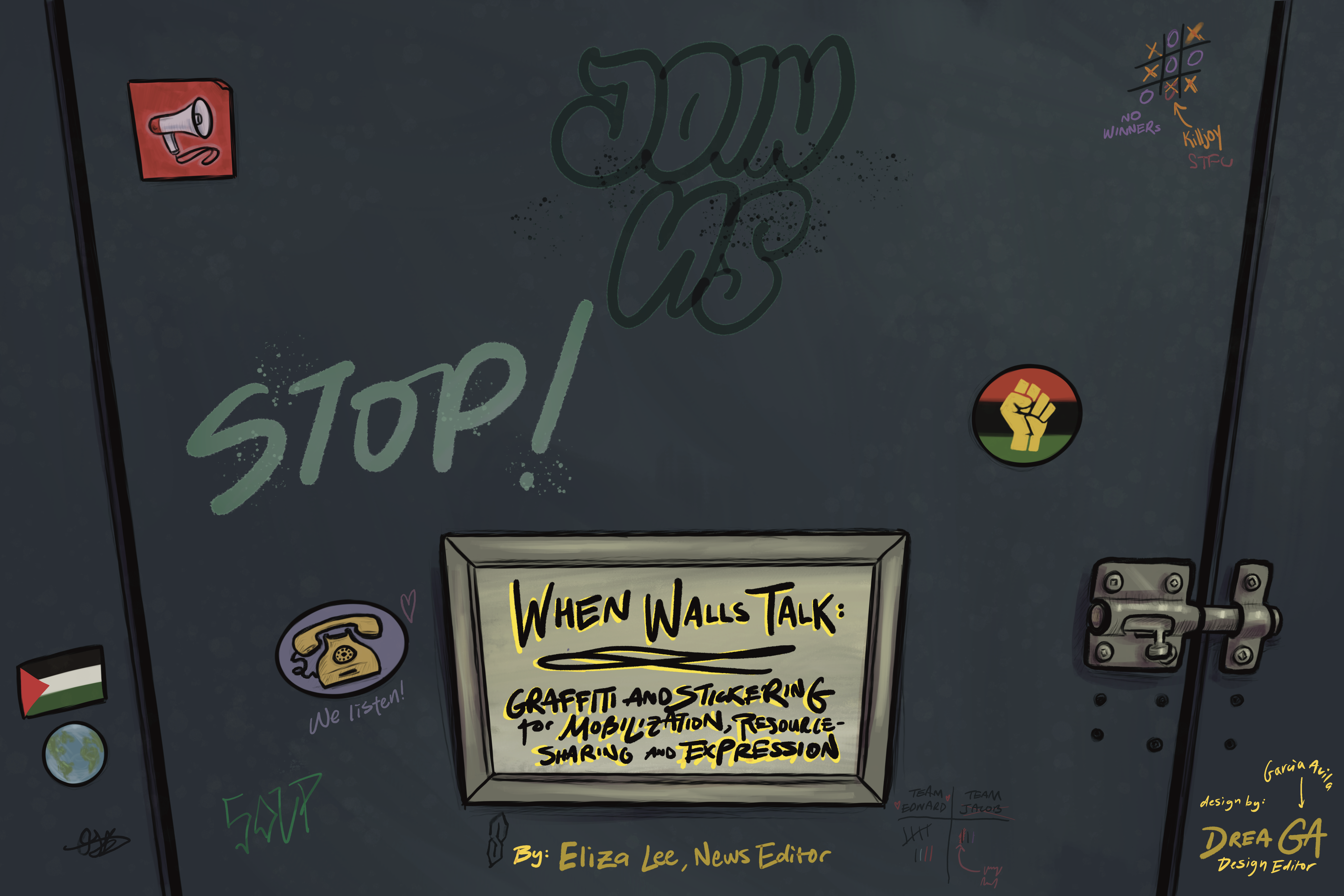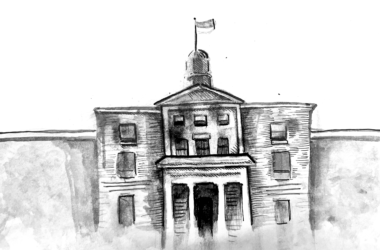
The Atlantic Wire regularly prints a column entitled “Media Diet,” in which prominent writers and editors describe how they sift through the masses of information available everyday through various media outlets. Although these students have not reached the same level of literary fame as the Atlantic’s contributors, their media diets are evidence of the wide variety of media sources students look to on a daily basis.
Most mornings, I roll over in my half-awake state, grab my laptop, pull it into bed, check the weather and then quickly skim National Newswatch and Bourque, news aggregators that give a good overview of what’s happening in Canada. I look at the Green News folder in my RSS feed and my @amarapossian/climate-news Twitter list, open a few environment-related articles I would like to read in tabs, close my laptop and get ready to leave.
Throughout the day, whenever I get a chance, I read the articles I have opened. I generally prioritize Rabble.ca, the Guardian’s Environment Section, Huffpost Green, articles in Yes! Magazine’s Planet Section, and articles on It’s Getting Hot in Here. I’m also on Environment Canada’s electronic news notification service and receive the latest updates, media advisories, and news releases by email.
I don’t rely on social media, but I like to use it as a filter. Twitter, Facebook, and Digg give me a pretty good idea of what people think is important right now. I skim my @amarapossian/enviro-people-and-orgs Twitter list daily, and while I don’t post many articles on Facebook, I have a number of go-to Facebookers that always seem to know what’s going on.
What I read changes depending on the time of the year. During the UNFCCC climate negotiations, for example, the Climate Action Network Canada, the IISD’s Earth Negotiations Bulletin, and a few youth delegations provide news before it appears in the mainstream media.
As for my reading material unrelated to the environment, my homepage is the New York Times. Marmara and Agos give me my Armenian news fix. I get my McGill news from the Tribune, the Daily, and the Bubble. Absolute Relatives is my go-to blog for thoughtful miscellany, and the Satorialist is my guilty pleasure.
Amara Possian
U3 joint honours Political Science & Middle Eastern Studies
Until this September, my daily reading routine always began in the same, predictable way: The Globe and Mail then The New York Times. Since I submitted my law school applications this fall however, I have developed an embarrassing addiction to the online forum for prospective Canadian law students, lawstudents.ca. This message board is populated by hundreds of eager applicants, all of whom lack any real knowledge of the acceptance policies of individual universities, yet rely on each other to analyze their chances of getting into certain schools. I read every new relevant post (though I never post anything myself) in the hope of gaining some kind of information, or at least catharsis.
Once I’ve finally torn myself away from these message boards, I comb through the Globe and Mail and the New York Times using my Google Reader. Thursdays and Saturdays are my favorite days of the week, since I worship at the altar of Gail Collins. For my daily dose of smut, I next log on to Jezebel. I also rely on my boyfriend to comb through the mass of sports articles and pick out what interests me, which usually comes from Bill Simmons. Next, I check the blog of my ultimate idol: Martha Stewart. Hers is also the only magazine I subscribe to. After this, I usually listen to a podcast while I get ready for class. My weekly favorites are Slate’s Culture Gabfest, DoubleX, and This American Life.
Tori Crawford
Editor-in-Chief
Alarm clock rings… Snooze … alarm clock rings … I grab my computer and open the Internet to ESPN.com. That is how my day begins every morning. I sift through the homepage, check the headlines, and explore those worth reading. Then it’s straight to RealGM.com to check their Wiretap Headlines. These are crucial for following sports, as all the headlines and rumours found on other websites are compiled into one list—the Wiretap. The site is divided into basketball, baseball, football, and hockey, and each section has its own wiretap. At around this point, I realize I’ll be late for class, grab a quick shower and a muffin, and head out. Later in the day (and during some of my boring classes), I go back to ESPN to see if there are any interesting opinion pieces and, specifically, if Bill Simmons has written anything new. While he’s a homer for Boston teams (and I hate Boston teams), he’s the best combination of humour and sports knowledge online. His Mailbags are a must read. Also on ESPN, I look for Gene Wojciechowski. He provides an original and intelligent viewpoint in a well-written fashion. Next, I try and make myself feel well-rounded by going to the New York Times and CNN to read their headlines. Following that, if the season is still on, it’s back to ESPN to read fantasy football analysis. Finally, not living in the cities of my favourite teams, an important way I stay up-to-date with them is by looking at the sports section of their hometown newspapers.
Jonathan Rosenbluth
U0 Management student
Despite my age and my nearly completed biochemistry degree, my daily reading repertoire resembles that of a shallow 12 year-old girl. My selections include the kind of stuff that makes you question whether or not you should have children in the future. I start with Perez Hilton, which I obsessively check at least 12 times throughout the day. If Justin Bieber launches a new nail polish colour for Wal-Mart, I need to know. I then move over to College Humor, where I read all the new articles and watch all the new videos over and over. Then, and only because by this time I’m likely to be in a public place where people will notice that my tabs only contain Facebook, Cracked, and Harry Potter Fan Fiction, I quickly skim the headlines on the New York Times website. I know very little about the relevant goings on of the world, so I quickly get confused and start entering New York Times buzz words on Wikipedia (which I may or may not set to Simple English). Once on Wikipedia, it’s all downhill from there. Now that I think about it, I spend an embarrassing amount of time there. That’s how I know that zebra drawn carriages exist and that Sir Arthur Conan Doyle believed in fairies, two facts I’m sure will be integral to my future endeavours.
Ioana Varlan
U3 Biochemistry major
This may make me unusual, but I rarely turn on my computer before class in the morning. When I start reading between classes though, it’s The New York Times, especially for breaking news, such as this weekend’s Arizona shooting. After scanning the headlines, I work through a few sections: International, National, Business Day, and Technology. Occasionally, I’ll even read Real Estate. I try not to miss David Carr’s “Media Equation” column on Mondays and David Leonhardt’s “Economic Scene” on Wednesdays, as well as anything by Frank Bruni or David Segal.
After that, I usually read a few articles from other newspapers: The Washington Post, The Los Angeles Times, The Toronto Star, and The Financial Times. For broader reading, I follow a number of journalists on Twitter, who often link to stories I would never find otherwise; The Post’s Ezra Klein and The Times’s Catherine Rampell are particularly good.
In print, I subscribe to The New Yorker, which is the only publication I’m not sure I could live without. I try to make it through at least a couple of the longer articles each week, and I always read James Surowiecki’
s “Financial Page” and David Denby’s film reviews. They’re fantastic. If I had more time to read, I might subscribe to Esquire as well.
As for other types of media, I can’t get enough of 30 Rock, and I occasionally watch The Daily Show in the afternoon. I’m almost always too far behind course reading to make it through a book during the semester, but I’m already planning my summer reading. At the top of the list: Andrew Ross Sorkin’s Too Big to Fail, Kingsley Amis’s Lucky Jim, and Robert Caro’s The Power Broker.
Theo Meyer
Managing Editor
The first thing that I need to do every morning is check the news. If I don’t, I can’t function correctly. It all started off very innocently in my first year as a Political Science student. I thought it would be wise to at least take a quick peak at what was going on in the world in case the profs made some reference to the news in class. I started off with CNN. Then, speaking to my parents who are still back in Spain, I realized that I was completely ignorant of the happenings in my own country. So every morning before class I also read El Mundo.
Before I knew it, I was reading over 25 different sources of news every day, not including Google News, or time spent listening to or watching news related programs on the radio or TV. It takes me at least two to three hours to go through them, as I don’t just read about what happened once, I have to check all the different point of views before I am satisfied.
Now it’s gotten to a point when reading the news interferes with my everyday life. Instead of going to class I have to read the news. If by any chance I have summoned the will to go to class without having read the news, it’s a waste of time. If I find myself in class without knowing what has happened in the world, I will check all of my beloved sources without paying any attention to what the prof is saying.
I have a problem. My name is Borja and I am an addict.
Borja’s Hit List:
1. CNN
2. La Razón
3. El Mundo
4. ABC
5. El País
6. BBC News
7. La Gaceta
8. La Vanguardia
9. El Economista
10. Público
11. Cinco Días
12. El Plural
13. National Post
14. The Globe and Mail
15. The Gazette
16. CBC News
17. The New York Times
18. The Wall Street Journal
19. Al-Jazeera
20. Granma
21. Financial Times
22. Le Monde
23. The Guardian
24. Google News
25. The Huffington Post
26. Many other political blogs plus radios and TV stations
27. The Economist
28. Foreign Policy Magazine
29. Foreign Affairs Magazine
Borja de Aristegui Arroyo
U3 Political Science major









